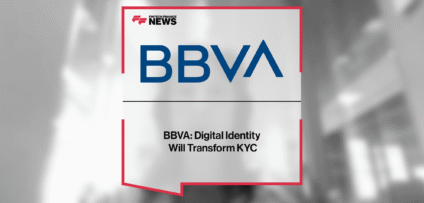Breaking News

Gen Z Most Likely to Shy Away from Talking About Fraud Experiences at Home Despite Being Most Targeted, Reveals TD
With Canadian Anti Fraud Centre (CAFC) reporting over $630 million lost to fraud in 2024 alone, Canadians are facing increased challenges as they grapple with a heightened cost of living and more sophisticated financial fraud attempts. Ahead of Fraud Prevention Month in March, a new TD survey has revealed that Gen Z is most likely to shy away from talking about fraud experiences at home, despite being the most targeted.
With nearly a third of surveyed respondents (29 per cent) expressing that they have or would shy away from talking about fraud experiences at home, Gen Z respondents stood out, as 51 per cent indicated their apprehension to speak out to family, compared to 39 per cent of Millennials and 23 per cent of Gen X. Interestingly, 45 per cent of Gen Z respondents say they have been the victim of a financial fraud or scam attempt, compared to 34 per cent of Millennials and 26 per cent of Gen X. Whether out of embarrassment or a lack of proper education around fraud, avoiding these conversations can make detecting fraud more challenging for Canadians.
When it comes to staying better protected, however, 92 per cent of surveyed respondents agree that identifying scams can be easier when all family members are involved in discussions around fraud prevention, highlighting the value that open conversations can have.
Fighting fraud together
While nearly half of surveyed respondents (46 per cent) reported feeling vulnerable about being a target of financial fraud, only one in five (20 per cent) say they are extremely confident in their ability to identify fraud or scams. Despite these concerns, conversations about fraud prevention remain infrequent within Canadian households, as 73 per cent of respondents admit they do not discuss or educate their family on financial safety and fraud prevention, highlighting a potential gap in awareness and preparedness.
Interestingly, 60 per cent of surveyed respondents say they would feel like less of a target for financial fraud if their family members regularly discussed scams and shared knowledge. Younger generations are particularly inclined to believe in the power of these conversations, with 73 per cent of Gen Z and 68 per cent of Millennials agreeing, compared to 52 per cent of Gen X.
“Our survey found that one third of Canadians avoided falling victim to a financial fraud attempt by talking to their families,” said Sophia Leung, Executive Vice President, Protect Platform at TD. “Younger Canadians seem reluctant to share their experiences with fraud, but they also value open dialogue, so it’s important for families to start the conversation and continually check in to help each other stay informed about potential fraud and scams.”
What Canadians worry about
As Canadians consider the dangers of financial fraud and scams, 93 per cent believe that fraud and fraud attempts will increase in the next year.
When asked what would worry them most if a family member fell victim to financial fraud, the survey found that:
- 80 per cent of respondents would worry about financial loss
- 69 per cent would worry about identity theft
- 48 per cent would worry about the negative impacts on family members’ mental states, like depression or paranoia
- 34 per cent would worry about family members keeping this information private or a secret if they fell victim
Defending against fraud
“When it comes to avoiding financial fraud and scams, the best way to look out for yourself and your family is by staying informed and communicating openly. Our survey saw that 42% of Canadians do not seek advice on fraud or scams and 26% have gone to social media or the internet for advice. Taking advantage of the professional tools and resources available to you is essential, and qualified expert advice can make the difference between staying protected and falling victim,” added Leung.
Whether you are discussing fraud with your family or not, it’s important to remain educated when it comes to identifying and avoiding financial fraud. TD offers a suite of tools and resources designed to inform and equip Canadians.
TD resources include:
- Both the TD Fraud Protection page and the TD Stories Fraud Hub offer valuable information and advice for Canadians looking to keep themselves and their family informed about financial fraud and scam prevention.
- TD MySpend is a mobile app that can help track purchases and transactions made from personal TD Canadian dollar savings, chequing and credit card accounts and automatically group them into categories, to help provide an understanding of how money is spent. The app can provide notifications of spending transactions in real-time, making it easier for you to recognize fraudulent transactions fast.
- TD Fraud Alerts allow you to receive instant text messages on your Canadian mobile phone number, notifying you if TD detects suspicious activity on your TD Credit Cards or TD Access Cards. When coupled with TD MySpend, Canadians can get even more immediate updates on purchases and suspicious transactions.
Card Controls from TD allow cardholders to feel more confident if they misplace their TD Access Card by providing an added layer of security. Cardholders can easily lock and unlock their TD Access Card if it gets misplaced, giving them greater control over their own ability to avoid fraud and financial scams.
People In This Post
Companies In This Post
- How USAA Builds Digital Experiences Around Its Members Read more
- Spayce: Organic Growth, Own Tech, New Wallet Read more
- EXCLUSIVE: “Check, Check… and Check!” – Pilar Fragalà, CBI in ‘The Fintech Magazine’ Read more
- BBVA: Digital Identity Will Transform KYC Read more
- Pocket Network Is Pioneering ‘DePIN for Data’ Read more

















